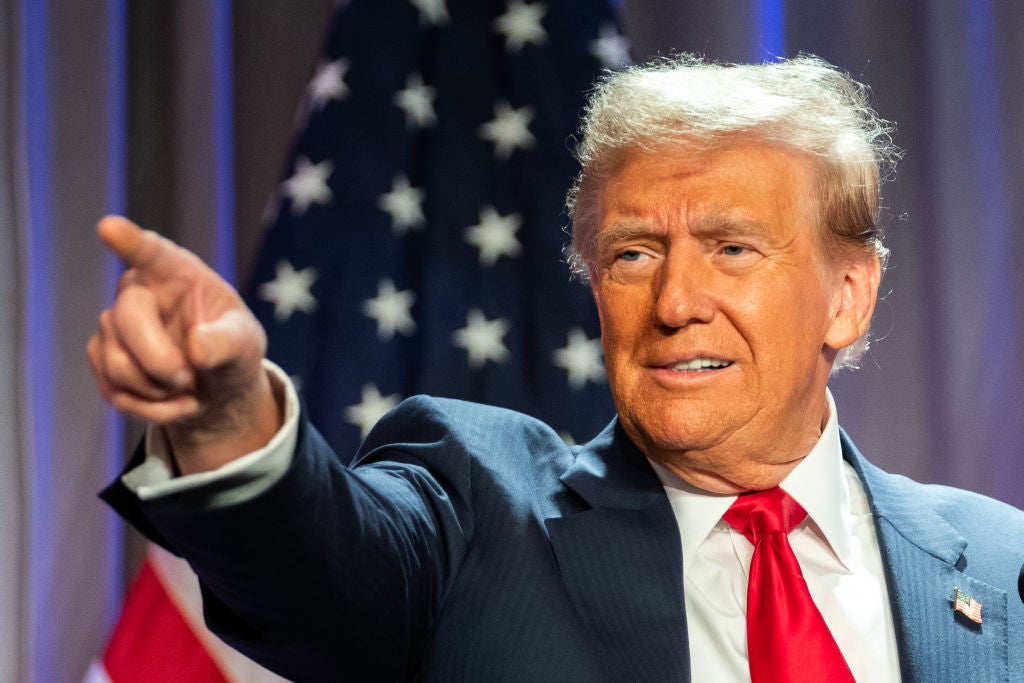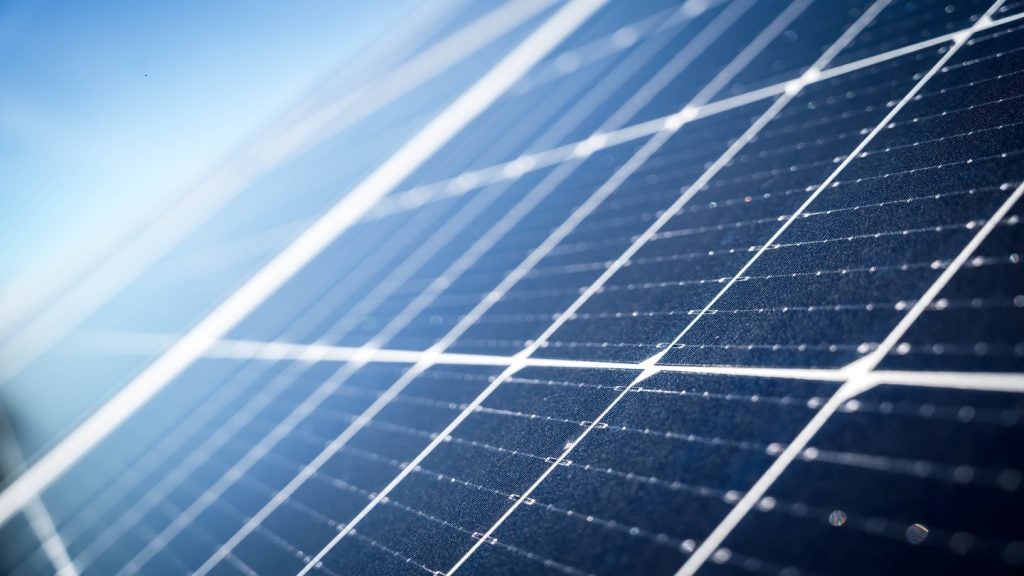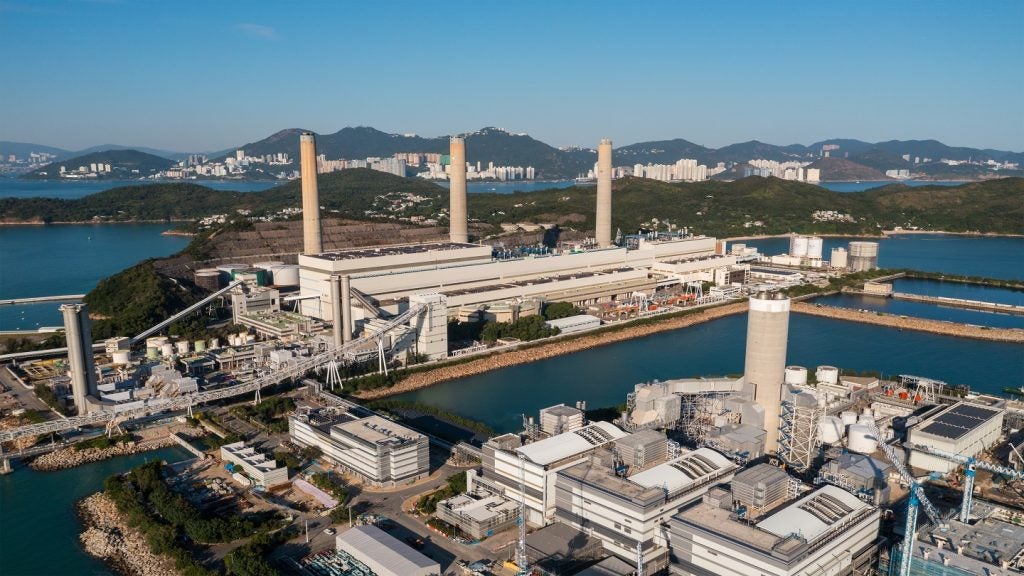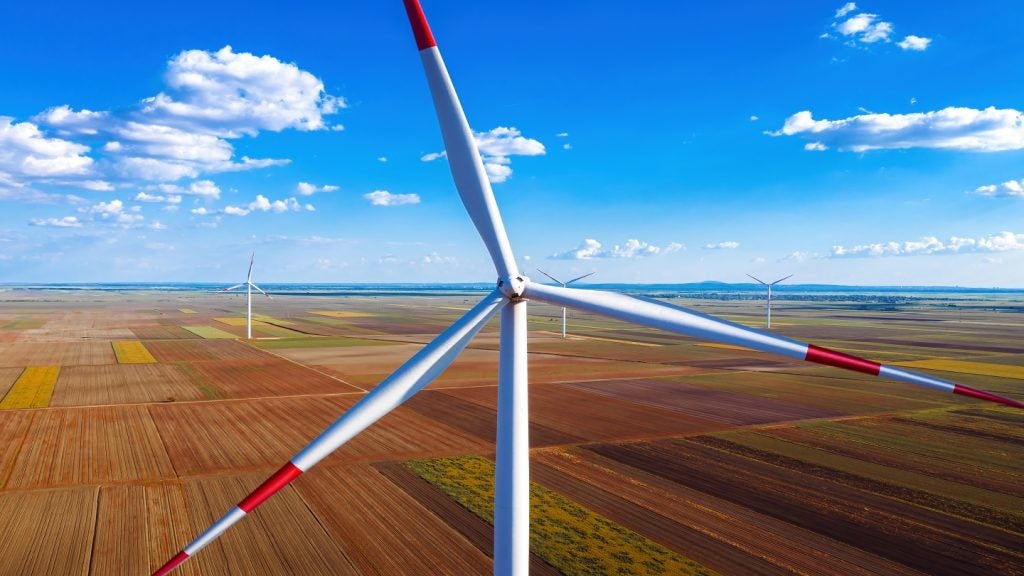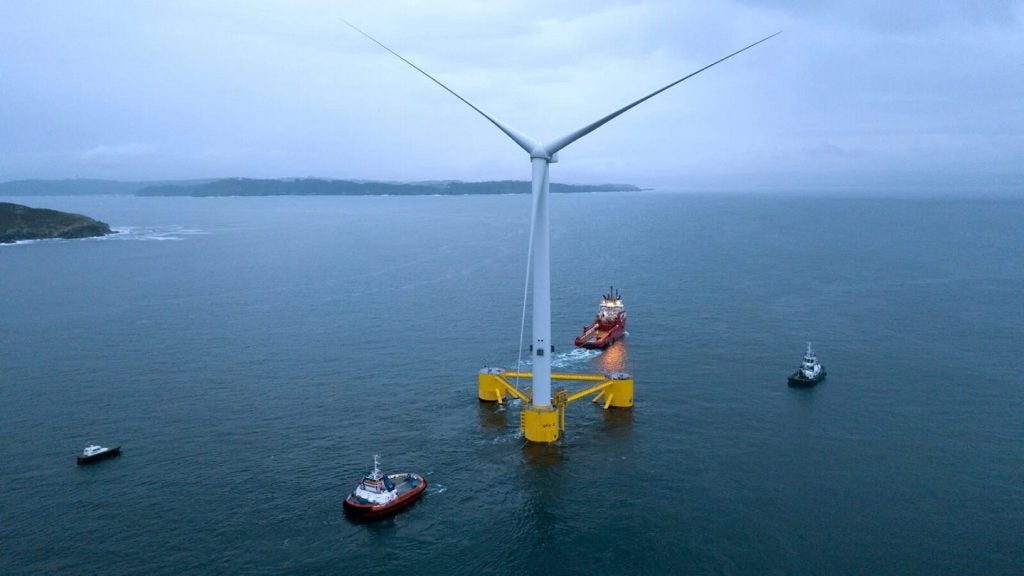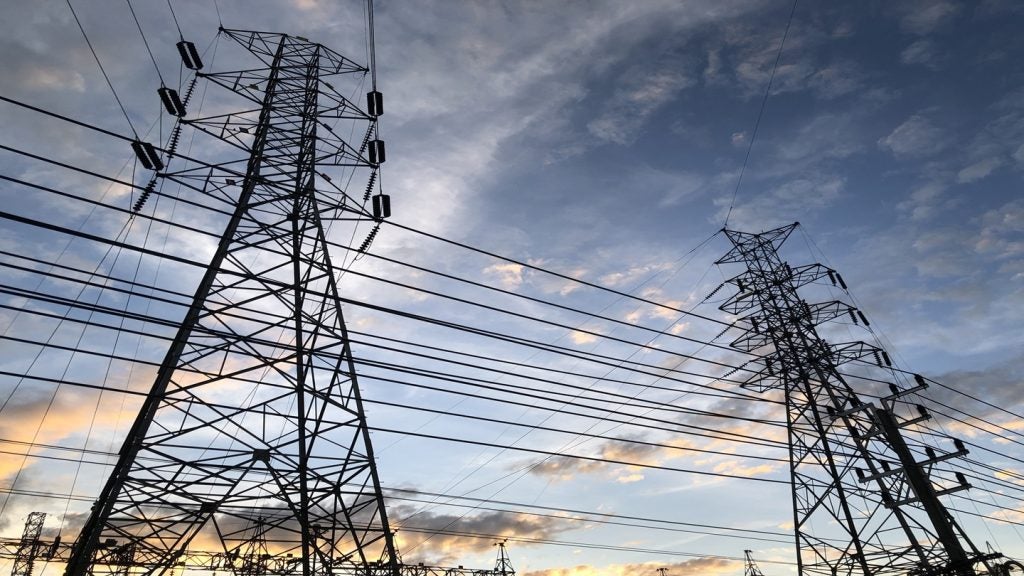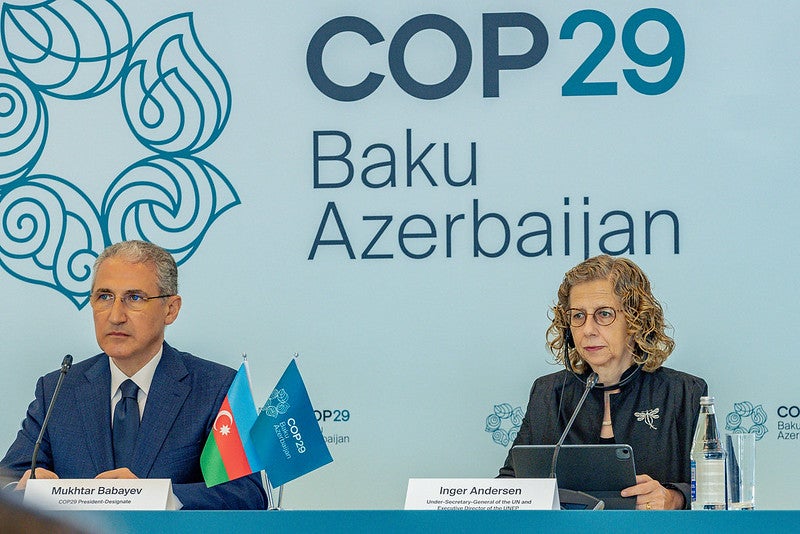Despite mild Republican disapproval, Donald Trump is set to pick several senior positions to overlook cross-cutting exercises – among those, a possible “energy czar”.
A czar is a high-level executive branch official overseeing a specific policy area. Czar positions, first dating back to Franklin D. Roosevelt’s presidency, have existed under both Democrat and Republican heads of state for the past couple of decades.
Unlike Senate-confirmed cabinet roles, czars are appointed by the president without Senate approval, allowing for quicker appointments outside the usual checks and balances.
Trump's energy czar is expected to replace Biden's 'climate czar', also known as the national climate advisor. “Trump's pick will align with his energy goals to deregulate and expand fossil fuel production,” says Paul Hasselbrinck, senior energy analyst at Power Technology’s parent company GlobalData.
Although details have not been made public, sources familiar with the transition to the new administration say the energy czar will help manage Trump’s energy agenda across agencies such as the Department of Energy (DOE), Department of Interior (DOI), Federal Energy Regulatory Commission and Environmental Protection Agency (EPA).
“Trump's energy policy agenda would go beyond the scope of just the DOE. His deregulation agenda will cut through the departments of energy, transport, agriculture and environmental protection,” Hasselbrinck confirms. “It may even cross the state department, as it pertains to global climate agreements.”
Speculation is growing over who might be tapped for the role, with several prominent names emerging as likely contenders.
Doug Burgum
Trump has repeatedly praised North Dakota Governor Doug Burgum’s energy expertise, saying he “probably knows more about energy than anybody I know”. The Trump loyalist, who has guided the president-elect on energy issues through his campaign trail, is a likely pick for energy czar, sources with knowledge of the transition told Politico.
Hasselbrinck agrees, stating: “Given Trumps picks so far, prioritising fealty over anything, his profile could be the most likely candidate to oversee his energy agenda.”
Burgum is a staunch advocate for the fossil fuel industry and has often criticised clean energy policies such as subsidies for electric vehicles. He has advanced oil and gas (O&G) activities in his state, especially promoting development in the Bakken region and supporting the Dakota Access Pipeline. He has also called for expanding O&G drilling and rare earth metal mining on Bureau of Land Management lands.
Simultaneously, Burgum believed in making North Dakota carbon-neutral by 2030. His plans to achieve this, however, vastly differ from conventional approaches. He stated in an interview with Future Farmer in 2021 that his plan “includes no mandates, no regulations and no pressure for any individual company or producer to change to what we are already doing [with fossil fuels]”.
“It sends a clear message to the federal government and other states that North Dakota can reach the end goal faster with innovation and free markets without the heavy hand of government mandates and regulation,” Burgum emphasised.
Having previously been on Trump's shortlist for vice-president, Burgum – with his “strong pro-fossil fuel views and known for his emphasis on ‘innovation over regulation’” as Hasselbrinck puts it – is likely to secure a key energy post in the Republican administration, even if not the energy czar.
Chris Wright
Chris Wright, who sources have also mentioned as a potential candidate for energy czar, “has been touted possibly as the energy industry's favourite”, according to Hasselbrinck.
The CEO and chairman of Liberty Energy, a Denver-based company specialising in hydraulic fracturing services for drillers, brings a wealth of experience across various energy sectors including O&G, nuclear, solar and geothermal energy. However, despite his background in greener sectors, Wright too advocates for hydrocarbons and is critical of clean energy.
In a 2023 podcast, he argued that increasing subsidies for solar panels won’t reduce oil demand, calling it “total nonsense”. He elaborated that wind and solar energy are concentrated in the electricity sector, which only accounts for 20% of global energy, making oil necessary to cover the rest and support key sectors like transportation and manufacturing which “solar does almost nothing for”.
“The net impact of wind and solar subsidies is just to make our electricity grids less reliable, electricity prices more expensive and do nothing for the demand for oil and very little for the demand for natural gas,” he said, adding that “wind and solar are not meaningful drivers of decarbonisation”.
“Wright argues that the benefits of oil and gas production to humanity far outweigh the environmental costs, defending their role in the future of energy. He doesn’t believe that top-down climate policies are the best route, preferring the market to guide its future,” says Hasselbrinck.
The Liberty chief has also been vocal about his scepticism regarding global warming, claiming it does not lead to an increase in extreme weather events. In a Liberty report, he criticised what he sees as an overemphasis on climate change and climate politics.
Hasselbrinck caveats, however, that Wright’s “expertise of the sector, views of being pragmatic and unlikelihood to blindly follow Trump's approach make him a candidate attractive to the industry, but not to Trump himself”.
Nevertheless, Wright’s long-standing relationship with Trump cannot be dismissed. His wife hosted Trump’s Big Sky fundraiser, at which Trump hinted that Wright could be appointed Secretary of Energy. If Trump is willing to publicly consider him for a key energy post, there is every reason to believe he could appoint him as energy czar.
David Bernhardt
A former lawyer and oil lobbyist who led the DOI during Trump’s first term, David Bernhardt is another contender being discussed for the position, according to sources.
Bernhardt first joined the DOI in 2001, and President George W. Bush appointed him solicitor in 2006. During his initial tenure, Bernhardt pushed to open the Arctic National Wildlife Refuge to O&G development.
After leaving the agency, he spent seven years as a registered lobbyist at a law firm, representing the largest O&G clients in the nation such as Samson Resources, Halliburton, Rosemont Copper and the Independent Petroleum Association of America.
“His expertise as a lawyer would help Trump in making sure that his deregulation agenda passes through courts and in defending the legal cases for policy changes that might face legal challenges,” Hasselbrinck comments.
In 2017, Trump nominated him for Deputy Secretary of the Interior, which was soon confirmed, and he made his way up as Secretary of the Interior in 2019. During this time, Bernhardt helped make more than ten million acres of public lands available for fossil fuel extraction and rolled back protections for endangered species.
Currently, Bernhardt chairs the Center for American Freedom at the America First Policy Institute, which has been developing policy plans for a future Republican administration.
Trump has indicated that Bernhardt could return to his administration in any capacity, either at the DOI again or the White House. Bernhardt's name has also been mentioned as a potential head of the White House Office of Management and Budget.
However, while Bernhardt “might be included in the equation”, he may “not have the general profile Trump would want as an energy czar”, according to Hasselbrinck.
Dan Brouillette
A former automobile industry lobbyist, Dan Brouillette served as Energy Secretary during Trump’s first term and is now emerging as another possible pick for energy czar.
Brouillette has a well-established career in energy policy, with a focus on O&G. He was staff director for the House Energy and Commerce Committee from 2003 to 2004 and helped shape provisions in the Energy Policy Act of 2005, particularly regarding the DOE’s regulation of liquid natural gas imports and exports.
He was also a member of Louisiana’s Mineral and Energy Board from 2013 to 2016, until Trump nominated him as Deputy Secretary of Energy in 2017 and Secretary of Energy in 2019.
As Secretary, Brouillette drove efforts in a variety of energy sectors including digitalisation, carbon capture, energy storage, fossil fuels, nuclear and solar. Notably, he played a key role in organising talks between the US and OPEC+ nations to ensure energy security during the pandemic.
After Trump 1.0, Brouillette became president of Sempra Infrastructure, overseeing projects such as Port Arthur LNG in Texas and Cameron LNG phase two. He then became the president and CEO of the Edison Electric Institute, a leading US utility lobby organisation, but recently stepped down to broaden his “focus to the overarching issues facing our global energy landscape”.
However, while Brouillette's extensive background in energy and “general vision alignment” with Trump make him a prominent candidate for energy czar, Hasselbrinck says Brouillette's statements denouncing the 6 January insurrection “may not have gone down well with the president-elect”.
Andrew Wheeler
Andrew Wheeler, former coal lobbyist and EPA administrator, is the last individual rumoured to be in the running for energy czar.
He began his career as special assistant at the EPA in 1991, after which he spent more than a decade as chief counsel for Senator Jim Inhofe, a well-known climate change sceptic, helping to reduce regulations on heavy greenhouse gas-emitting industries.
In 1997, he stepped onto Capitol Hill as staff director for the Senate Subcommittee on Clean Air, Climate Change, Wetlands and Nuclear Safety, then chief counsel for the Senate Committee on Environment and Public Works.
The Ohio-native transitioned to the private sector in 2009 to lobby for the law firm Faegre Baker Daniels, representing clients such as coal producer Murray Energy. He actively lobbied against the Obama administration’s climate regulations for power plants and worked to convince the DOE to subsidise coal plants.
In 2017, Trump nominated Wheeler as EPA deputy administrator and was soon sworn in, after which he became EPA administrator in 2019. During his EPA tenure, he rolled back regulations aimed at reducing fossil fuel pollution from power plants, vehicles and O&G wells.
Wheeler’s pro-hydrocarbon views would be a fit for Trump’s energy czar post. However, like Brouillette, Wheeler said that he was “completely disgusted” by the events of 6 January in an internal email to staff, seen by Government Executive, which may have raised doubts about his loyalty to Trump.
But Democrat Representative Don Beyer has said that Wheeler is not in the doghouse, as publicly he “stood by Trump and refused to criticise him”, contrary to many of Trump’s officials who resigned following the event.


